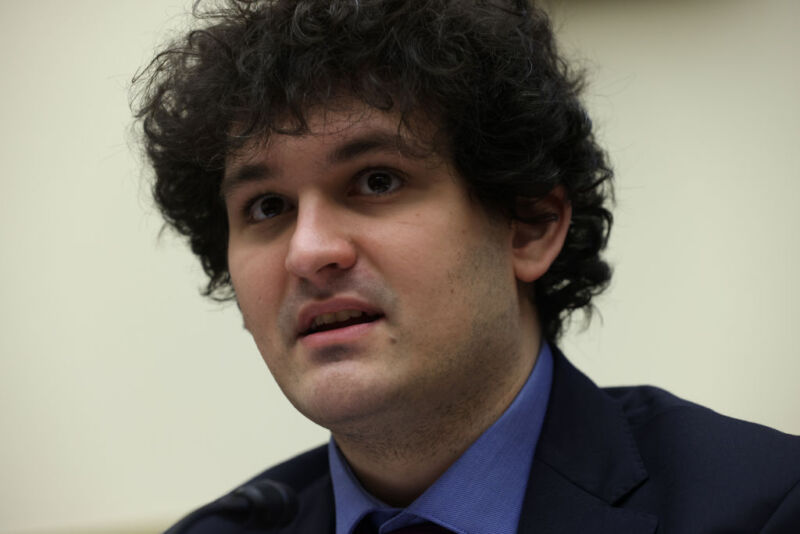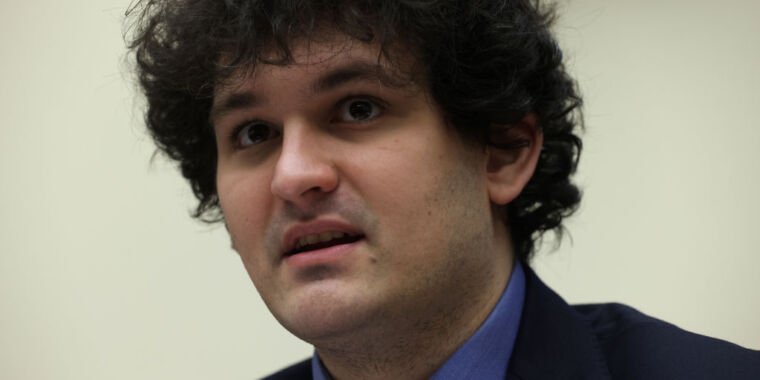
It has been a little more than a week since disgraced FTX co-founder Sam Bankman-Fried was interviewed at a New York Times conference, telling attendees, “I didn’t ever try to commit fraud on anyone.” Shortly after that interview, US Senate Committee on Banking, Housing, and Urban Affairs Chairman Sherrod Brown sent a letter to Bankman-Fried, requesting that he appear next week at a Senate committee hearing entitled “Crypto Crash: Why the FTX Bubble Burst and the Harm to Consumers.”
Brown wrote that “there are still significant unanswered questions about how client funds were misappropriated, how clients were blocked from withdrawing their own money, and how you orchestrated a cover up.” Bankman-Fried missed the deadline yesterday to respond to Brown, but this morning, he finally tweeted to confirm that he is willing to talk to Congress. Now on this upcoming Tuesday, Bankman-Fried appears set to testify to the House Financial Services Committee on the day before Brown’s Senate hearing is scheduled.
“I still do not have access to much of my data—professional or personal,” Bankman-Fried tweeted. “So, there is a limit to what I will be able to say, and I won’t be as helpful as I’d like. But as the committee still thinks it would be useful, I am willing to testify.”
Ars could not immediately reach Bankman-Fried’s lawyer, Mark Cohen, for comment, but his legal team had previously urged the FTX founder to keep quiet. Cohen declined to comment to The New York Times beyond Bankman-Fried’s tweets.
In Bankman-Fried’s tweet thread this morning, he vowed to “try to be helpful during the hearing,” still seeming to feign ignorance over what went so wrong with FTX. He said he can “shed what light” he can during the House hearing on his own failings, FTX’s ability to repay debts to American customers, and his own thoughts on the crash.
Since the FTX collapse, Bankman-Fried has been “lounging in a $30 million Bahamas penthouse,” Bloomberg reported, granting interviews via video calls with reporters, and it’s possible that he may go that route when providing testimony to the House committee.
It’s still unclear whether Bankman-Fried will also testify before the Senate on December 14. In his letter, Brown warned Bankman-Fried that he was prepared to issue a subpoena to compel Bankman-Fried’s testimony.
While Bankman-Fried has recently seemed to open up in media interviews about what happened at FTX, it’s riskier for him to talk to Congress. If Bankman-Fried is found to have concealed information or made false statements in the House hearing, he could face fines or imprisonment of up to five years.
Last December, Bankman-Fried testified before the US House of Representatives Committee on Financial Services. At that time, he was helping Congress understand the benefits of financial innovation. He told the House committee then that FTX had become a success because customers enjoyed “easy access to financial products all in one place, in many cases on a mobile phone, without multiple gatekeepers assessing rents and posing risks to the investor along the way.” This, he said, “is how the digital-asset ecosystem is impacting the real everyday lives of those involved and helping them achieve economic security along the journey.”
Less than a year later, Reuters reported that Bankman-Fried had “secretly moved $10 billion of FTX customer funds to Alameda Research,” while “at least $1 billion in customer funds had vanished.” At the time, Bankman-Fried denied “secretly” moving the funds, insisting he instead had misread “confusing internal labeling.”
This morning, Bankman-Fried tweeted that part of the problem at FTX was that he stopped being a “model CEO” when he became “lazy” and “disconnected.” As Congress investigates FTX’s “clear misuse of client funds” and actions that “wiped out billions of dollars owed to over a million creditors,” Bankman-Fried continues his apology tour from the penthouse that he moved into three months after FTX’s success peaked and two months before advising Congress on the “future of finance.”
“I’m sorry,” Bankman-Fried tweeted. “Hopefully people can learn from the difference between who I was and who I could have been.”








